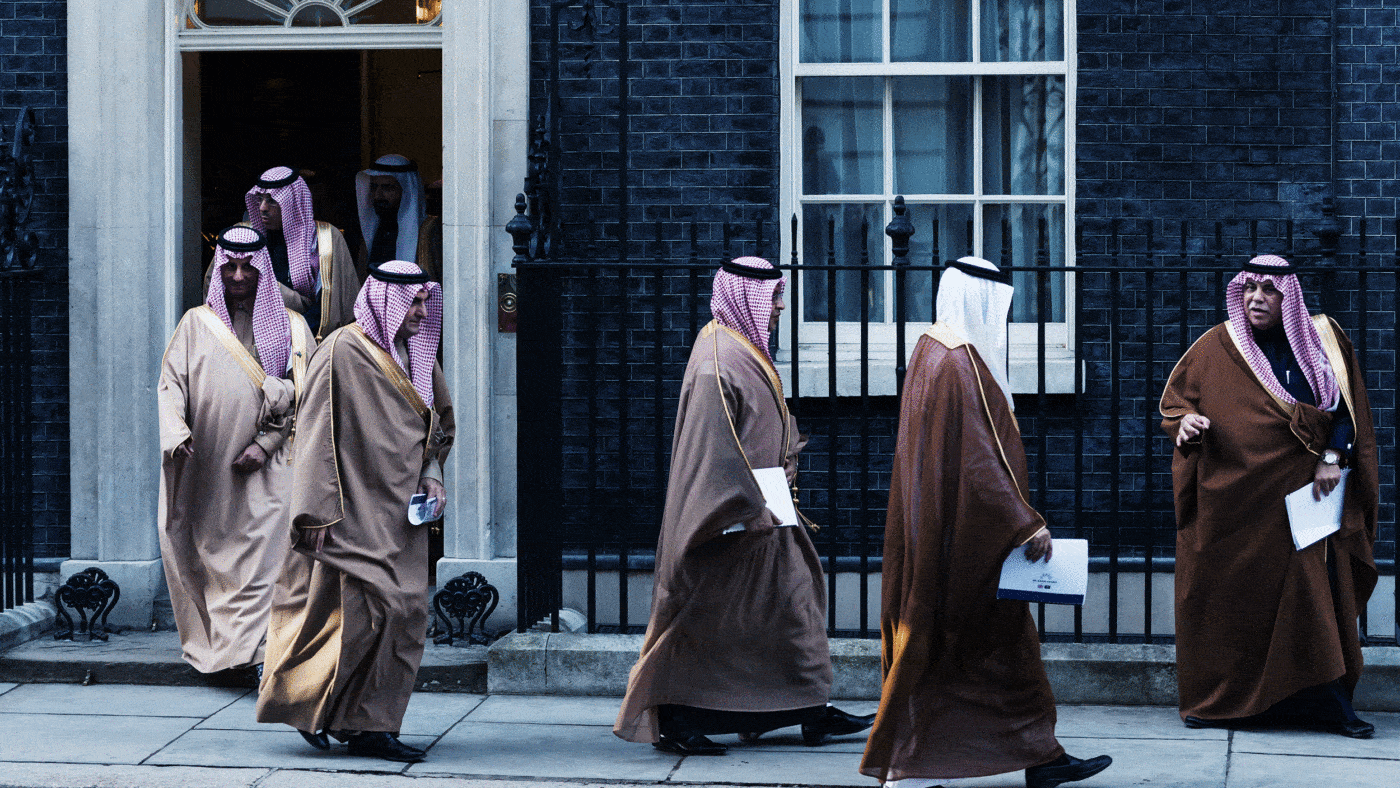Just over a week ago, mourners from across the globe came to commemorate the life of the UK’s greatest diplomat, Queen Elizabeth II. Amongst those who paid their respects at the funeral were leaders from Dubai, Bahrain, Qatar, Kuwait, Oman, Saudi Arabia and Jordan. The attendance of these leaders, hailing from countries where UK diplomacy has not always been straightforward, should inspire the Government to give some serious thought to our relationships in the Middle East.
Quite rightly, in recent years the focus of our foreign policy has been on Russia and the growing threat of China. However, we cannot ignore the Middle East’s importance, not least in terms of peace and energy policy. With the US pulling out of the region and switching its focus towards Asia, there is a diplomatic vacuum to fill. For the UK, this is an opportunity to step up and play a key role in facilitating dialogue in a vital geopolitical region.
Diplomacy in the Middle East is difficult. Too often, states in the region take sides in ways that are incompatible with UK foreign policy interests and the smooth running of diplomacy. There are few Middle Eastern nations with relationships on both sides of geopolitical debates who can broker talks and ultimately facilitate progress. At the same time, cultural and religious differences with the West too often inspire unjustified distrust amongst the UK’s electorate, making diplomatic events, partnerships and trade deals difficult.
Progress is also hard to measure. The heartening images of women and girls opposing Iran’s morality police show bravery and give hope of better things to come. Yet they also risk uncertainty and instability in a key nation. Similarly, in recent days we have seen that states with which we have uneasy relationships can still be key to achieving our foreign policy objectives. The Saudi-brokered release of UK citizens held by Russia as prisoners of war is just one example.
What then should the UK’s approach be? The key to UK engagement in the Middle East must be to build relationships with countries that can help facilitate diplomatic progress across the region and with nations across the world. We must be unafraid of engaging with countries whose laws, policies and culture run counter to our own, and instead take a cold hard look at geopolitical realities. We must be a critical ally. Central to this are countries like Turkey, the UAE and Qatar.
The UK’s interests in Turkey are clear. Whether or not it one day joins the European Union, it plays a key role in dealing with the ongoing conflict in Syria. As Syria’s nearest neighbour, Turkey is the first stop for thousands of refugees fleeing terror. Without our engagement these same refugees will continue fleeing into Europe and then to our own shores.
Our relationship with the UAE is long standing and a source of huge amounts of foreign direct investment. Yet earlier this year the UAE was one of a handful of nations, alongside China, to veto a UN Security Resolution condemning Russia’s invasion of Ukraine. There have also been accusations that the state has given safe harbour to sanctioned oligarchs. This has been accompanied by the UAE extending its ties with China and the red carpet being rolled out for Bashar al-Assad. These actions are disappointing. However, they also highlight the importance of bringing our diplomatic weight to bear with countries with whom we have long-lasting relationships.
In particular, we should nurture our relationship with Qatar. It is the smallest of these nations but it is the richest in per capita GDP terms – and has been embracing an increasingly facilitative diplomatic role on the international stage. When the US asked it to make connections with the Afghans to find a peaceful solution to the war they stepped up. They are engaging with similar diplomacy between the US and Iran. They have made clear their support for a two state solution to the Israeli Palestinian conflict whilst providing aid to people in both Gaza and the West Bank. They are an established partner of the West and have discussed providing gas as a result of Russian energy shortages. However, they are also a major exporter of gas to China and are one of few countries to admit that global energy shortages cannot be solved without Russia.
It is helpful timing that in November this year, Qatar will host the World Cup. We should use this opportunity to develop our relationships with the Qataris and across the Middle East. Football has always brought people together. It has facilitated conversations, shared experiences and understanding between people of all faiths and races. This UK must follow the same approach when it comes to diplomacy in the Middle East.
Click here to subscribe to our daily briefing – the best pieces from CapX and across the web.
CapX depends on the generosity of its readers. If you value what we do, please consider making a donation.


